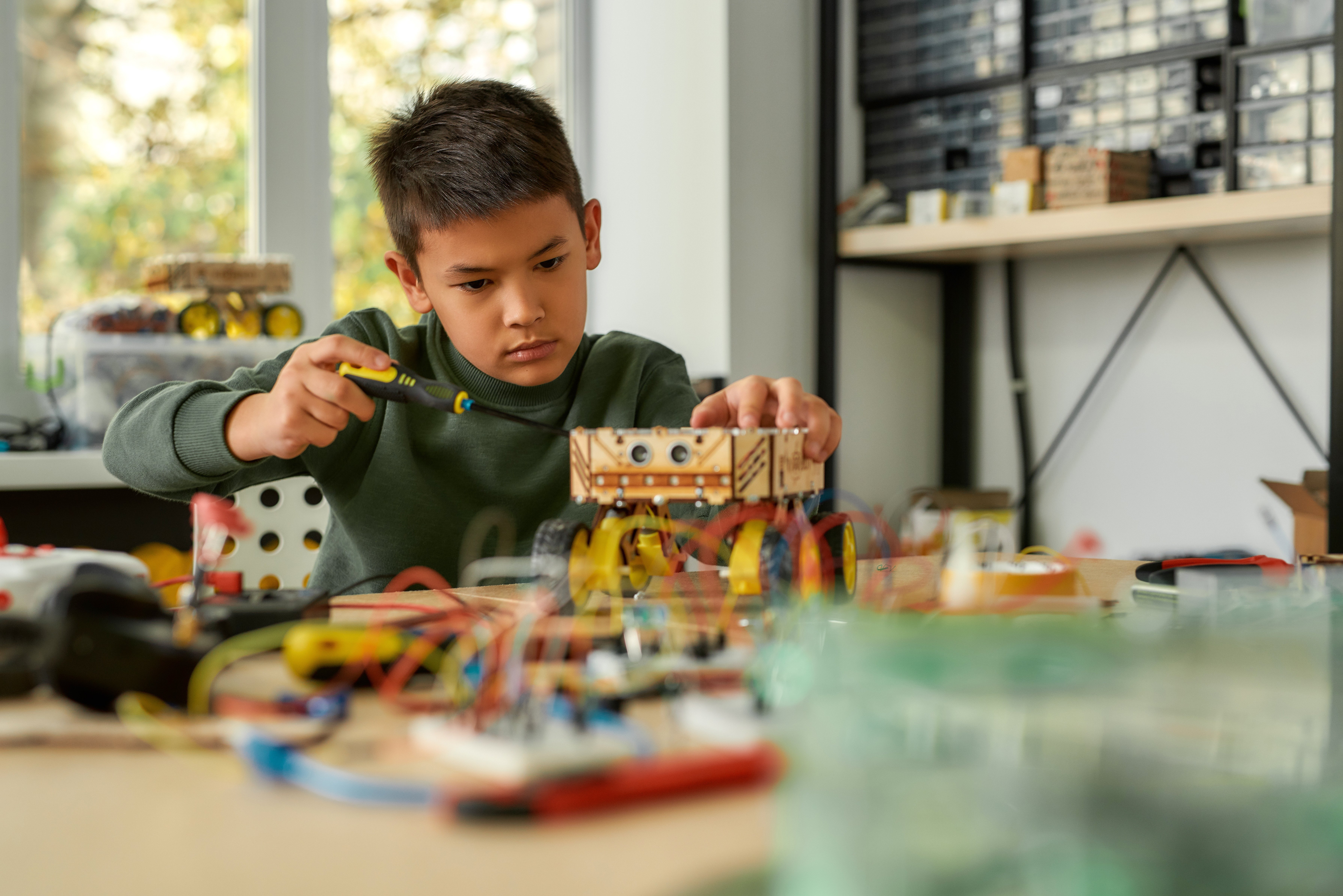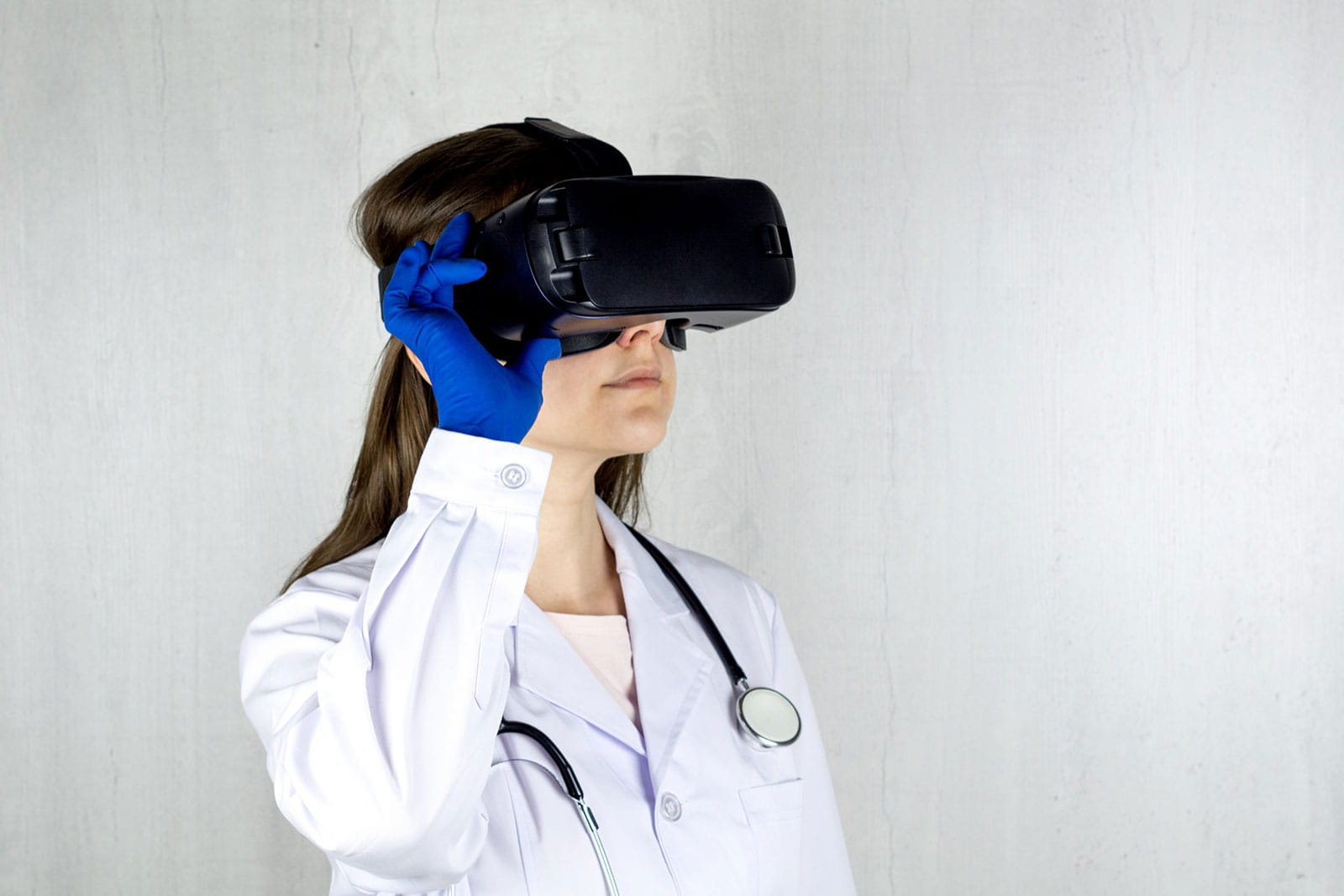Faced with the technological, economic and social upheavals of the 21ᵉ century, the education system must adapt to meet emerging needs. Digital transformation, artificial intelligence, new student expectations and changes in the world of work are redefining educational goals and teaching methods. In this article, we will explore in depth how and why education should be modernised to meet these challenges, examining both the opportunities and the obstacles on the road to this transformation.
The foundations of educational modernisation
Modernising education is not just about introducing technological tools into the classroom. It involves an in-depth review of teaching methods, objectives and approaches to bring education more into line with the realities of the contemporary world.
Educational needs evolution
Previously focused on the acquisition of factual knowledge, education today needs to focus on cross-disciplinary skills: creativity, collaboration, critical thinking and adaptation. These skills are crucial in a world where jobs are changing rapidly and innovation is at the heart of economic growth.
The expectations of new generations
Today's students, often referred to as ‘digital natives’, have grown up with the Internet, smartphones and social networks. Their expectations of education differ from those of previous generations. They are looking for a learning experience that is interactive, engaging and connected to their personal interests.

The integration of digital tools: an educational revolution
Digital technologies for teaching
One of the most visible aspects of the modernisation of education is the introduction of digital tools into the classroom. These tools are not just gadgets, but ways of enriching and diversifying the learning experience.
- Online learning platforms
Platforms such as Moodle, Google Classroom and Khan Academy provide teachers with ways of structuring online courses, sharing resources and monitoring students' progress. They also facilitate access to educational content for millions of learners around the world. - Collaborative tools
Google Docs, Microsoft Teams and other digital tools enable collaborative learning in real time. Students can work together on projects, even remotely, and develop communication and teamwork skills. - Serious games
These educational games, which combine entertainment and learning, are particularly effective at capturing students' attention while imparting knowledge. For example, games like Minecraft Education Edition teach concepts ranging from mathematics to urban planning.
The impact on student engagement
The integration of digital technology encourages student engagement by making learning more interactive and fun. It also makes it possible to diversify teaching formats to cater for different learning styles: visual, auditory or kinaesthetic.

Artificial intelligence: a fundamental change
Automation of repetitive tasks
One of the greatest assets of AI in education is its potential to automate administrative and repetitive tasks, such as marking exams or managing absences. This frees up time for teachers, who can concentrate on more strategic tasks.
Individualised learning
AI-based learning systems, such as Smart Sparrow and DreamBox, offer students personalised learning paths. By analysing learners' responses and behaviour, these platforms identify individual weaknesses and adjust content in real time.
Forecasting educational needs
AI can also help anticipate the needs of students and teachers. For example, by analysing data on student performance, tools such as IBM Watson Education can suggest targeted interventions to improve results.
Limits and risks of AI
However, the use of AI raises ethical questions, particularly in terms of data protection. How can we ensure that pupils' sensitive information is secure? And how can we avoid biases in the algorithms, which could put certain groups of students at a disadvantage?
Virtual and augmented reality: immersive learning
Immersive exploration of concepts
Virtual reality (VR) allows students to enjoy immersive learning experiences. They can explore historical sites, visit distant planets or immerse themselves in scientific simulations. For example, Google Expeditions offers virtual excursions to hundreds of locations, from coral reefs to the pyramids of Egypt.

Risk-free practice
In fields such as medicine, engineering or aviation, VR allows students to practice in a simulated environment, without danger to themselves or others. This improves their confidence and skills before moving on to real-life situations.
Accessibility and inclusion
AR and VR can also play a crucial role in the education of students with special needs. For example, tools such as VR Education enable students with autism to develop social skills in a controlled environment.
Education for a changing world
Preparing students for the careers of tomorrow
According to some studies, more than 60% of the jobs that will exist in 2030 have not yet been invented. It is therefore crucial that education does not limit itself to fixed knowledge, but teaches students to learn and adapt constantly.
Soft skills
As well as technical skills, employers are increasingly valuing soft skills: communication, leadership and resilience. Integrating these skills into school curricula is a priority to prepare students to succeed in complex professional environments.
Lifelong learning
With the rapid development of technology, it is becoming essential for people to continue learning throughout their lives. Education therefore needs to extend beyond the traditional school years to provide opportunities for lifelong learning.
The challenges of modernising education
Digital inequalities
The digital divide is one of the main obstacles to modernising education. While some pupils have access to cutting-edge tools, others, particularly in rural or disadvantaged areas, lack even reliable Internet access. Government and private initiatives are needed to guarantee equal opportunities.

Resistance to change
Teachers, parents and educational decision-makers can sometimes be reluctant to adopt new technologies, for fear of losing the fundamental values of education or for lack of training. To make the transition a success, it is crucial to provide appropriate support and training.
Dependence on technology
Although technology is an asset, it is important not to become dependent on it. Human interaction, the development of empathy and creativity must remain at the heart of the educational experience.
A holistic vision of the education of the future
Modernising education is not just about tools and technologies, but also about the way we think about learning. To be effective, this transformation must be based on close collaboration between teachers, students, parents and institutions.
Inclusive education
All students, whatever their needs, abilities or socio-economic background, must have access to quality education. This means rethinking infrastructures, programmes and teaching approaches to include marginalised students.
Education and sustainable development
Finally, education must play a central role in promoting sustainable development. Teaching students to protect the environment, respect diversity and act as responsible citizens is an essential part of building a sustainable future.

Conclusion
Modernising education is a complex but necessary process to meet the challenges of the 21ᵉ century. The introduction of technologies such as AI, virtual reality and digital tools offers unprecedented opportunities to make learning more accessible, personalised and engaging. However, these advances must be accompanied by measures to ensure equity, ethics and humanity in education. By investing in this transformation, we can prepare future generations to thrive in an ever-changing world.



